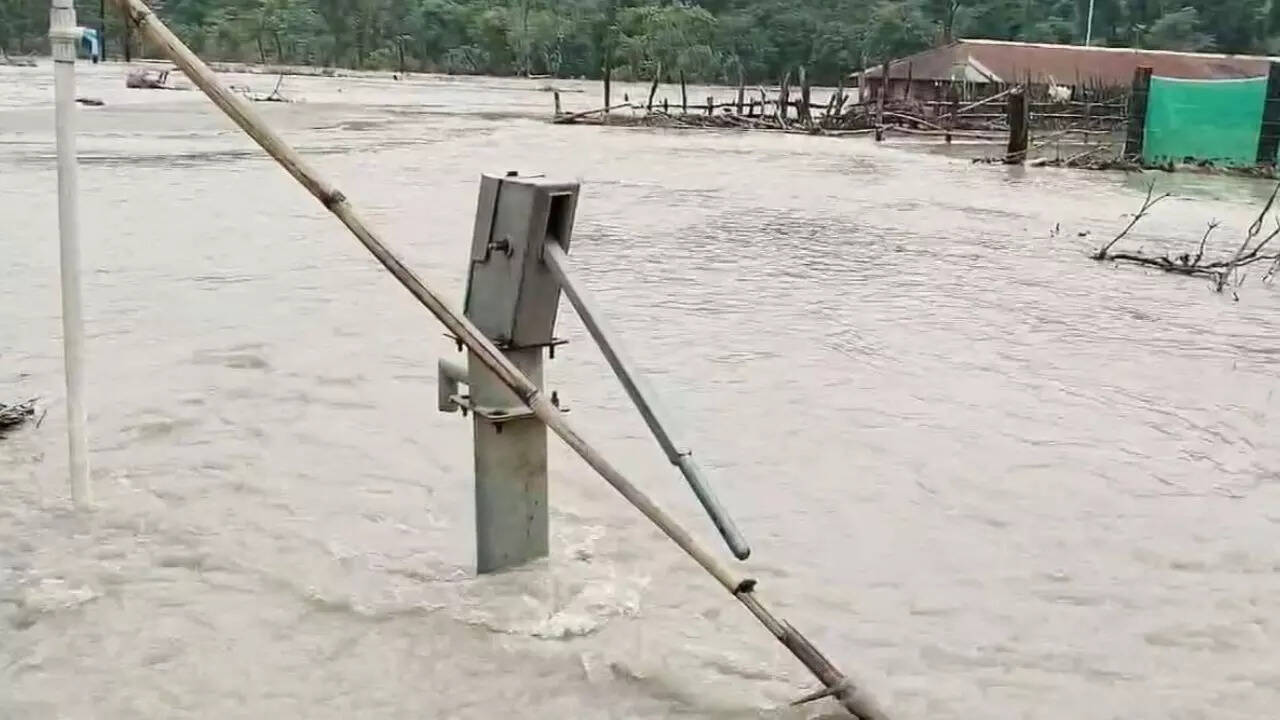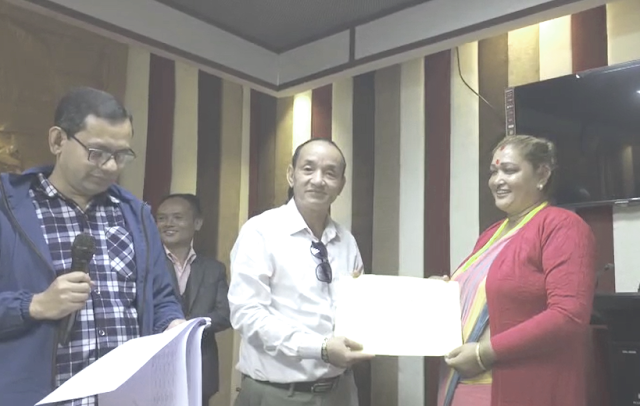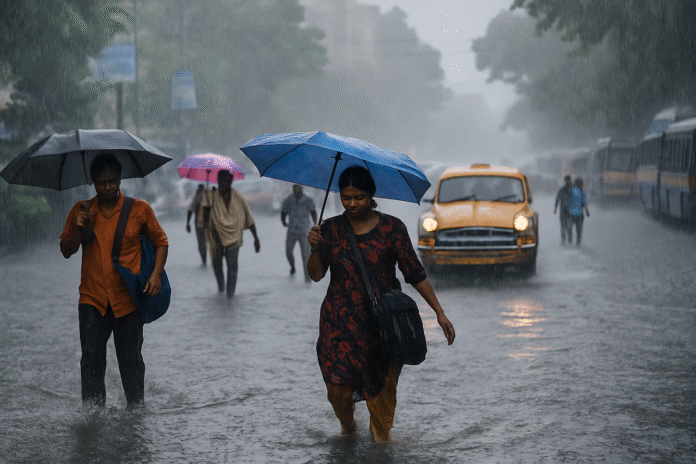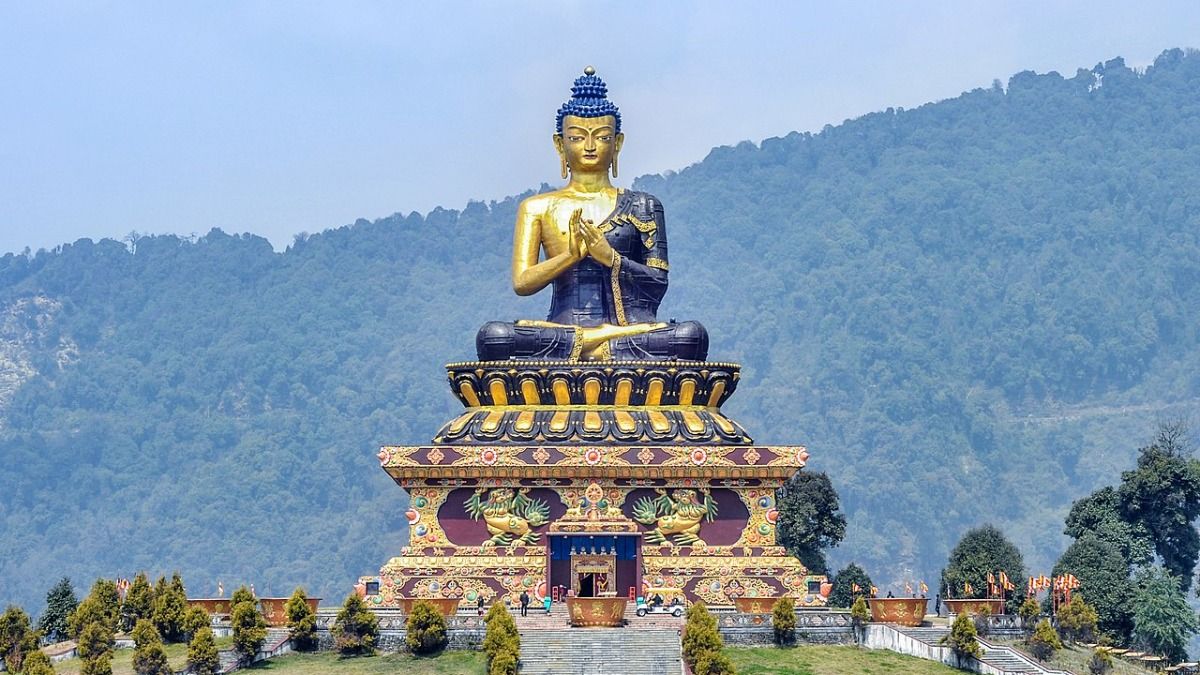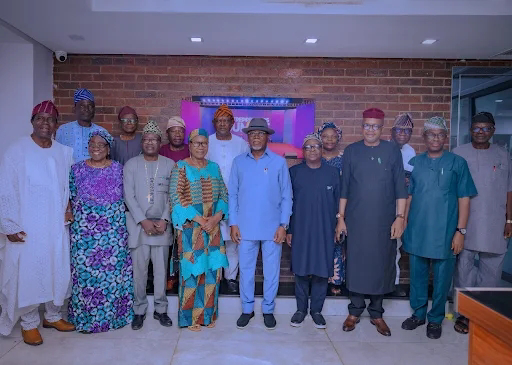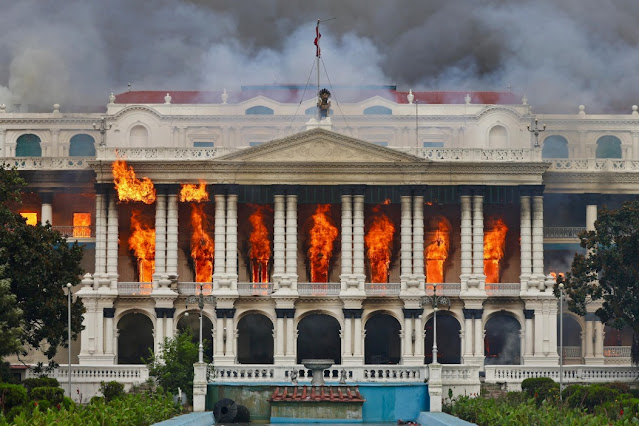KalimNews | Siliguri | June 4, 2025 : A severe drinking water crisis has gripped Siliguri after heavy rainfall and landslides in neighbouring Sikkim choked the Teesta River with excessive silt, uprooted trees, and floating debris. The sudden disruption has significantly hampered the Siliguri Municipal Corporation’s (SMC) ability to treat and distribute potable water across the city, sparking widespread protests and political unrest.
On Tuesday, the crisis reached a flashpoint as workers and leaders from both the BJP and CPI(M) staged simultaneous demonstrations in front of the SMC headquarters. The situation turned tense when CPI(M) protestors attempted to breach the office premises, resulting in a scuffle with police. In the process, the main gate of the municipal office was damaged.
The water supply shortfall, which began earlier this week, has affected nearly all wards of the city. Residents have reported dry taps for over two days, forcing many to rely on limited tanker water or buy bottled supplies. According to SMC officials, the root of the crisis lies in the unusually high silt content in the Teesta River — a direct consequence of landslides and flooding upstream in Sikkim. The surge of muddy water has overwhelmed water treatment systems and rendered multiple water intake engines non-functional.
Mayor Gautam Deb, responding to the public concern, stated: “This is a natural disaster. Despite the challenges, we are doing everything possible to mitigate the situation. People have a right to protest — we stand with them.”
To address the crisis, Deb visited Fulbari on Tuesday to inspect a newly-constructed intake tank and water treatment plant. Accompanied by officials from the Public Health and Irrigation Departments, he noted that only one intake engine is currently operational due to the sediment-heavy water, reducing the SMC’s water extraction and treatment capacity by nearly 50%.
In an interim relief measure, the civic body has deployed 35 water tankers, each with a 5,000-litre capacity, and distributed approximately 1.5 lakh water pouches across the worst-hit neighbourhoods. The SMC is also in the process of procuring 10 additional tankers and has requested three more from the Public Health Engineering (PHE) Technical Department to bolster emergency supplies.
Deputy Mayor Ranjan Sarkar explained that the absence of a dedicated sedimentation pond — typically used to allow raw water to settle before purification — has further strained the city’s ability to treat turbid water.
Meanwhile, Irrigation Minister Manas Bhuiyan is expected to arrive in Siliguri on Wednesday. A high-level meeting has been scheduled at the State Guest House to assess the situation and develop a coordinated response strategy involving municipal and state authorities.
Political leaders from both opposition and ruling parties have acknowledged the severity of the situation. However, opposition parties have blamed the civic body for poor preparedness and mismanagement, alleging that better infrastructure and planning could have prevented a crisis of this scale.
As efforts continue to stabilise the water supply, authorities have appealed to residents to remain calm and cooperate. Civic volunteers and health workers have been mobilised to ensure the fair distribution of emergency water supplies, and further updates are expected following Wednesday’s ministerial visit.


